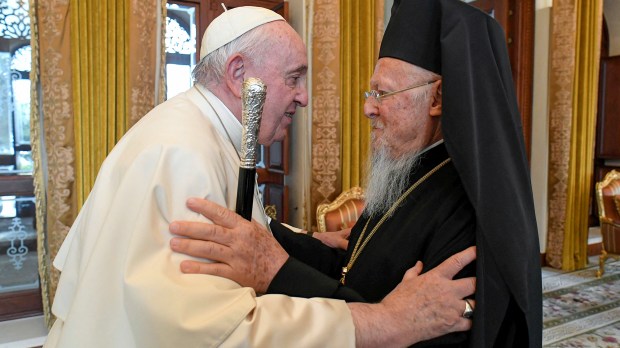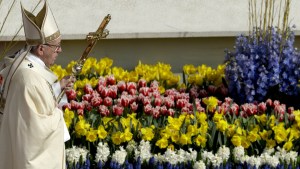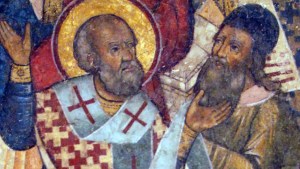During his visit to the Democratic Republic of Congo, Pope Francis spoke about the coming 1,700th anniversary of the first Council of Nicaea in 2025. Speaking with other Jesuits, the Pope said that “we are preparing a meeting for 2025” with Bartholomew I, the 270th archbishop of Constantinople and Ecumenical Patriarch.
Bartholomew and Francis have met about 15 times since 2013, and have developed a quite friendly relationship. In 2014, the patriarch of Constantinople announced his wish to meet again in Nicaea in 2025, to mark the 17th centenary of the council.
Nicaea is today’s Iznik, 130 kilometers southeast of Istanbul. In the year 325, more than 300 bishops from East and West, from different Patriarchates and Churches, gathered there for a council. The Creed that was then drawn up is very similar to the one that is still recited today in the liturgy. It affirms, among other things, that Jesus “is of the essence of the Father, God of God, Light of Light, very God of very God, begotten, not made, consubstantial with the Father,” contrary to what Arianism then claimed.
“With Patriarch Bartholomew, we want to reach an agreement on the date of Easter,” Pope Francis explained.
This issue remains a sensitive subject in the Christian world. Catholics and Protestants follow the Gregorian calendar, and the Orthodox the Julian calendar. In 2025, the two calendars will coincide. “Let’s see if we can agree on that for the future,” Pope Francis added.
The Nicaean (Nicene) Creed
The Nicene Creed is technically named the “Niceno-Constantinopolitan Creed” and was developed following the First Council of Nicaea in 325. The council was held to fight Arianism – a theological heretical school named after its principal proponent, a priest named Arius.
The word creed comes from the Latin credo, “I believe.”
The Creed was developed to affirm the teachings of the Church, and was further refined at the First Council of Constantinople in 381. It expanded on previous creeds in order to be more precise in what the Church believes.
The Nicene Creed, frequently recited at Sunday Mass, reads as follows:
I believe in one God,
the Father almighty,
maker of heaven and earth,
of all things visible and invisible.
And in one Lord Jesus Christ,
the Only Begotten Son of God,
born of the Father before all ages.
God from God, Light from Light,
true God from true God,
begotten, not made,
consubstantial with the Father;
through him all things were made.
For us men and for our salvation
he came down from heaven,
and by the Holy Spirit
was incarnate of the Virgin Mary,
and became man.
For our sake
he was crucified under Pontius Pilate,
he suffered death and was buried,
and rose again on the third day
in accordance with the Scriptures.
He ascended into heaven and is seated
at the right hand of the Father.
He will come again in glory
to judge the living and the dead
and his kingdom will have no end.
I believe in the Holy Spirit, the Lord,
the giver of life, who proceeds
from the Father and the Son,
who with the Father and the Son
is adored and glorified,
who has spoken through the prophets.
I believe in one, holy, catholic
and apostolic Church.
I confess one baptism
for the forgiveness of sins
and I look forward to the resurrection
of the dead
and the life of the world to come. Amen.



